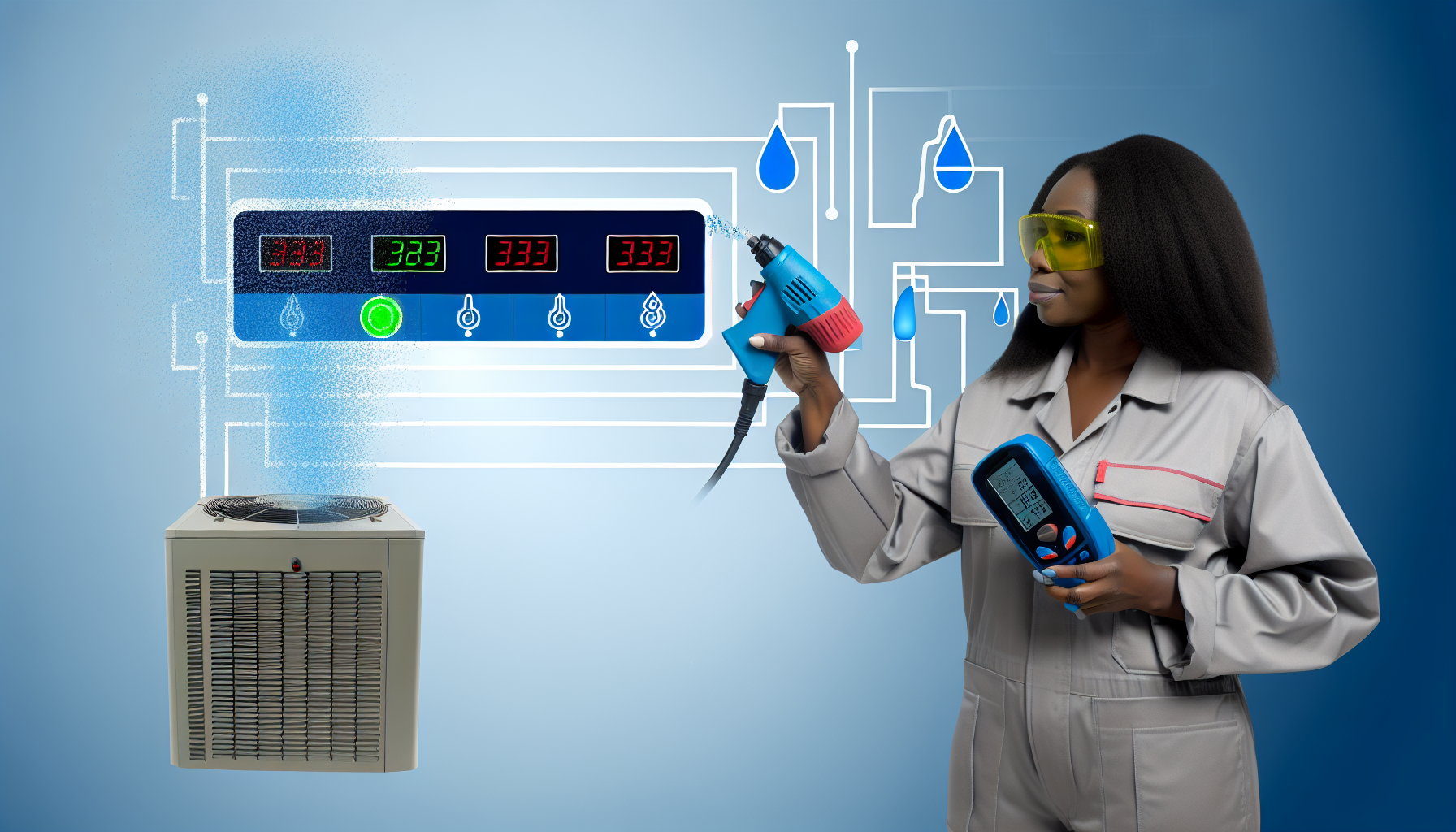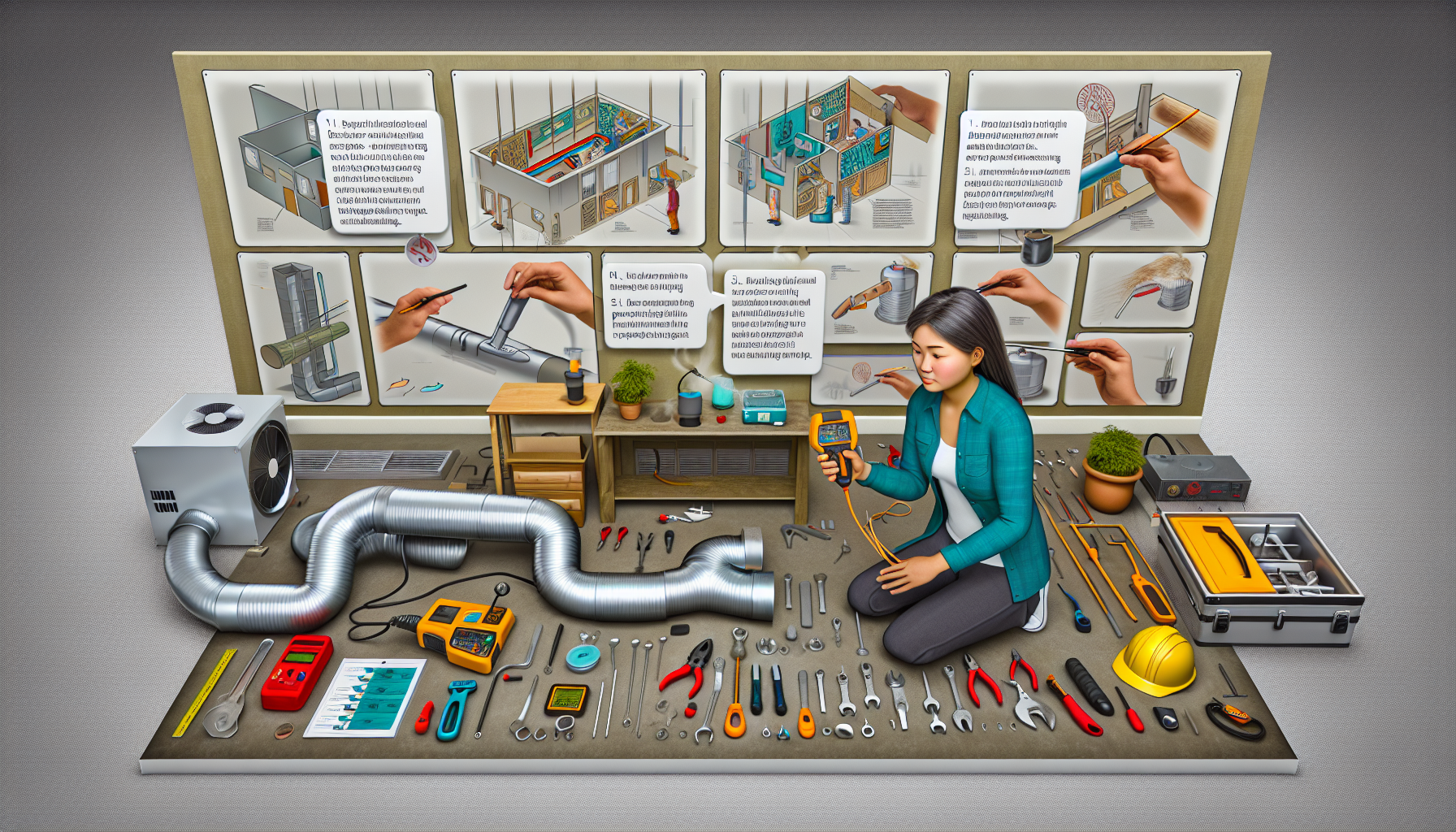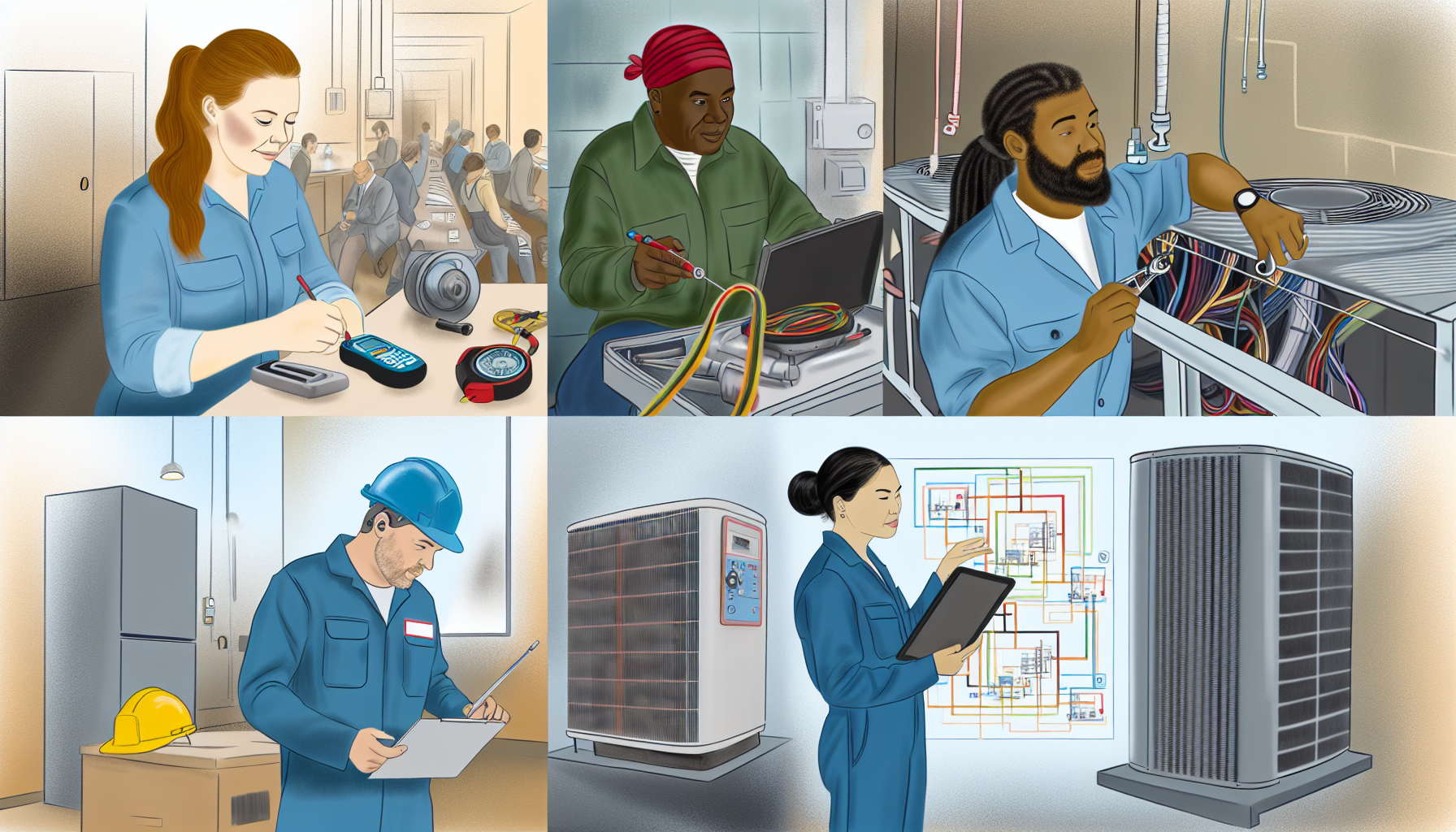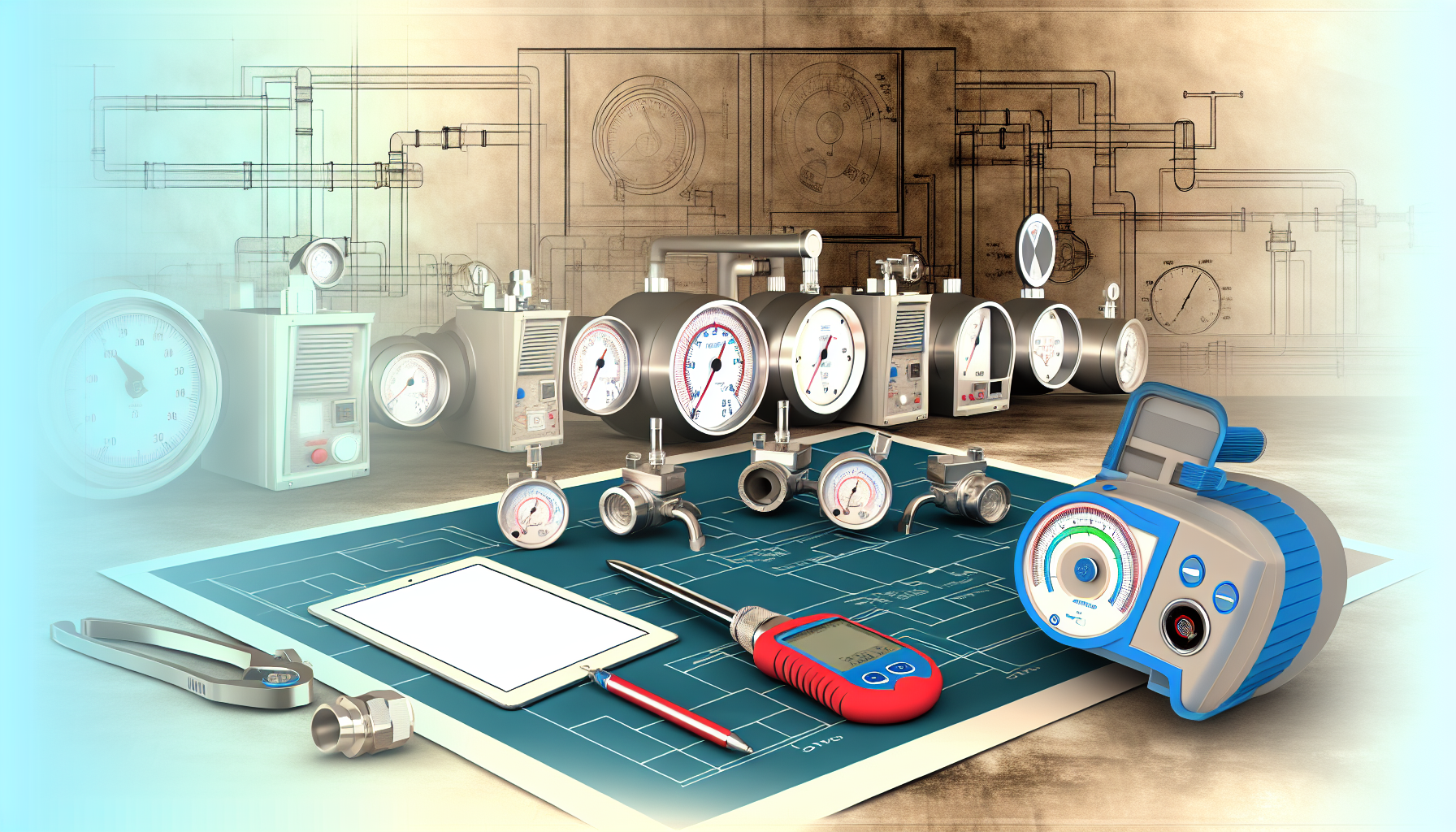The History of HVAC Measurement Tools
Climate control systems are fundamental to our modern lifestyle. The comfort of homes, the productivity in offices, and the preservation of countless goods all rely on effective heating, ventilation, and air conditioning (HVAC) systems. As these systems have evolved, so too have the instruments used to measure their performance and efficiency. This blog post traces the development of HVAC measurement tools over time, shedding light on how these advancements have shaped indoor climate control.
The Early Days of HVAC Measurement
The earliest HVAC systems were rudimentary, relying on natural ventilation and manual heating methods. Measurement tools were equally basic, with simple thermometers being used to gauge temperature and airflow being assessed through rudimentary, qualitative methods.
The Emergence of Modern HVAC Tools
As the science of HVAC developed, it became clearer that maintaining optimal temperature and air quality required precise measurement. The following is a sequence of the progression that has brought us to the state-of-the-art tools we use today:
- Analog Gauges and Meters: Initially, analog devices had a central role in measuring temperature, pressure, and humidity in HVAC systems.
- Electronic Sensors: Advances in electronics led to the introduction of sensors that offered more accurate and reliable readings.
- Integrated HVAC Systems: The development of integrated systems marked a significant shift, as it allowed for the continuous monitoring and adjustment of indoor climates.
- Smart Thermostats and IoT Devices: The advent of smart technology pushed HVAC measurement forward, combining the functions of measurement and control into user-friendly interfaces.
Understanding HVAC Measurement Tools
There are several types of measurement tools prevalent in modern HVAC systems:
- Thermometers: Nowadays, we have digital thermometers that offer real-time temperature data with precision.
- Hygrometers: These are used to measure the relative humidity in the air, which is crucial for both comfort and health.
- Manometers: Used for measuring pressure within the HVAC system, essential for diagnosing system health and performance.
- Anemometers: These measure airflow velocity, informing us about the efficiency of the system’s air distribution.
- Gas Detectors: These tools are vital for safety, as they can detect the presence of carbon monoxide and other harmful gases.
- Infrared Cameras: These are used for identifying heat losses and gains in a building’s envelope, helping to improve system efficiency.
The Benefits of Advanced Measurement
Advanced measurement tools have made it possible to control climate with unparalleled precision. Here are some of the benefits:
- Energy Efficiency: Precise HVAC measurement allows systems to operate with the minimal amount of energy needed to maintain comfort, leading to lower utility bills and a reduced carbon footprint.
- Improved Comfort: Accurate climate control results in better regulation of temperature and humidity, ensuring maximum comfort for occupants.
- System Longevity: With proper monitoring, HVAC systems can operate under optimal conditions, which reduces wear and tear and extends system life.
- Environmental Impact: Efficient HVAC systems contribute less to environmental pollution, aligning with global efforts for a more sustainable future.
- Health Benefits: Advanced sensors can not only maintain comfort but also monitor for pollutants and gases that could be detrimental to human health.
Challenges in HVAC Measurement
Despite the progress, HVAC professionals still encounter challenges when it comes to measurement:
- Complexity: Modern HVAC systems, with their numerous interconnected parts, can be intricate, making troubleshooting and measurement difficult.
- Integration: Combining data from various sensors and tools into a cohesive management system can be a painstaking process.
- Costs: Advanced measurement tools and sensors can be expensive, which may deter smaller operations from investing in the latest technology.
The Future of HVAC Measurement
As we continue to search for greater efficiency and control over our indoor environments, the future of HVAC measurement tools appears promising:
- AI and Machine Learning: The introduction of these technologies could enable HVAC systems to predict and adapt to changes autonomously.
- Wireless Technology: Continued advancements in wireless tech may lead to more versatile and less invasive measurement installations.
- Environmentally-Friendly Refrigerants: As refrigerants evolve to reduce environmental impact, measurement tools will also need to adapt to these new substances.
- More User-Friendly Interfaces: As consumer tech becomes more intuitive, so too will HVAC systems and their measurement components.
FAQs About HVAC Measurement Tools
What Is the Most Important HVAC Measurement Tool?
The importance of an HVAC measurement tool is context-specific; however, thermometers and thermostats are generally considered fundamental for basic temperature control in HVAC systems.
How Often Should HVAC Systems Be Measured and Monitored?
HVAC systems should be continuously monitored to ensure they are functioning correctly. Regular checkups by professionals are also recommended, typically twice a year, before the heating and cooling seasons.
Can Smart Thermostats Save Money?
Yes, smart thermostats can lead to significant energy cost savings by optimizing heating and cooling cycles based on your habits and preferences.
Are Advanced HVAC Measurement Tools Worth the Investment?
For most commercial and many residential applications, the answer is yes. Advanced measurement tools often pay for themselves through energy savings and by preventing costly breakdowns.
How Do HVAC Measurement Tools Impact Indoor Air Quality?
Measurement tools that monitor airflow, humidity, and the presence of pollutants directly impact indoor air quality by allowing the system to respond to quality issues promptly.
Climate control is more than a modern convenience—it is a science that has steadily advanced thanks to the evolution of HVAC measurement tools. From the rudimentary thermometers of the past to today’s sophisticated sensors, these tools play a vital role in ensuring that our indoor environments are comfortable, safe, and environmentally sound. As technology continues to improve, we can expect HVAC systems to become even more efficient, intuitive, and responsive to our needs.








